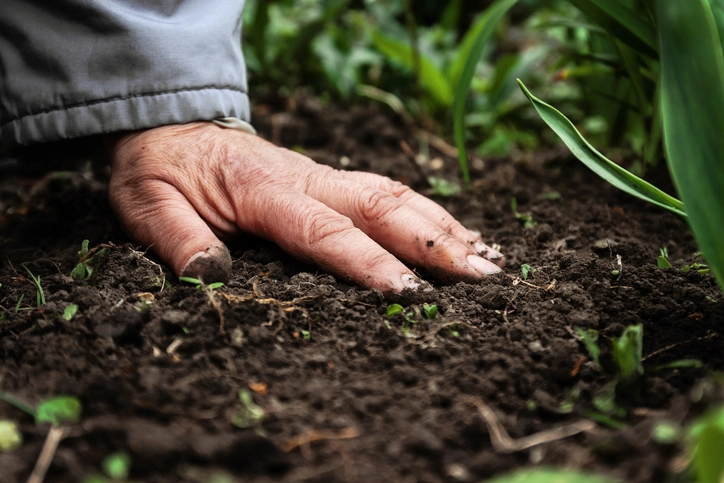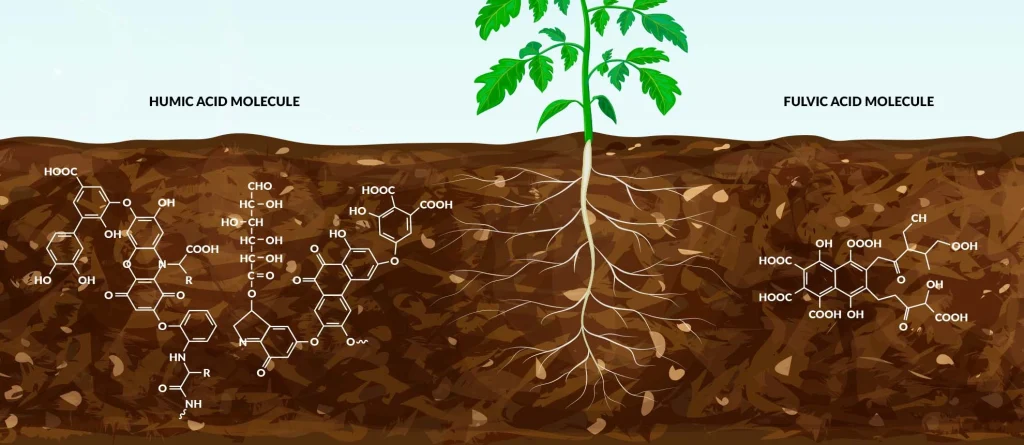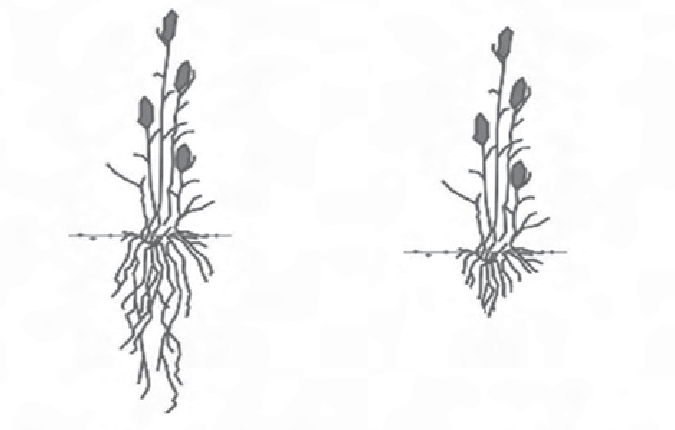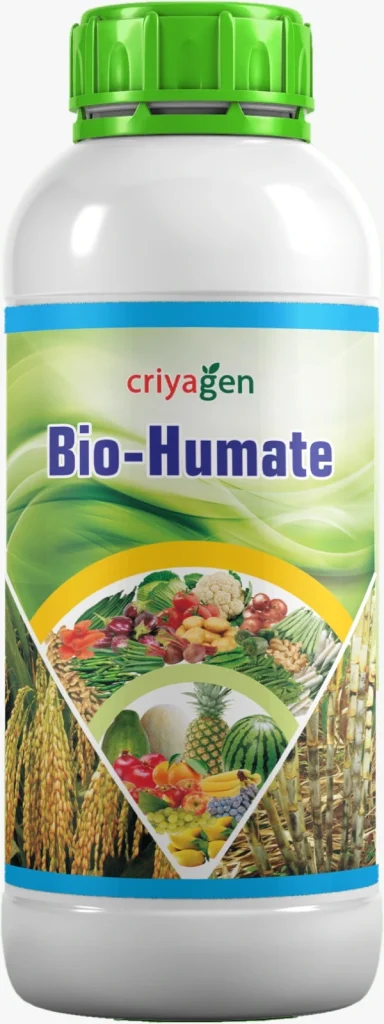Are you finding your soil is not holding water for long, forcing you to irrigate more than normal? Do the fertilizers you apply seem to disappear, not giving you the yield that you need? This is where we need a real solution—a way to work with nature, not against it. This is where Bio-Humate come in. An organic soil conditioner for Happy Crops. Let’s see how Bio-Humates can help farmers to improve soil quality and yield.
What Are Bio-Humates?
Bio-Humates are natural compounds that improve soil health and plant growth. They formed as a result of the decomposition of organic matter over centuries, resulting in substances rich in humic and fulvic acids.

How Bio-Humates Condition the Soil?
The acids in Humates improve your soil structure, enhancing nutrient availability, and supporting beneficial microorganisms. That’s why Humates are considered as the best soil conditioners. Humates form complexes or weak chelates with minerals in the soil, making essential nutrients easily accessible to plants.
They also energise the good microbes in the soil, providing a vital food source for organisms such as algae, mycorrhizae, fungi, and soil beneficial bacteria for crop growth. By improving nitrogen fixation, reducing nutrient losses, enhancing soil’s water-holding capacity, and stimulating soil biology, humates conditions the soil for happy crops and happy farmers.
What are the Contents of Bio-Humate?
The key contents of humates are Humic and Fulvic acids. These chemicals are known for their ability to bind with minerals through a process known as chelation. Chelation allows plants to absorb minerals more efficiently.

Humic and fulvic acids help plants to increase its height and root density, even when applied in low doses. The effectiveness of humates in farming is largely attributed to these acids’ soil conditioning properties, and their ability to improve nutrient uptake.
How Bio-Humates Work
Humates improve plant growth and soil health through several mechanisms. Here are the top 5 mechanisms by which Bio-Humates conditions your soil and helps you improve your yield.
Increased Nutrient Uptake
Humates improve the availability of nutrients in the soil. Their negatively charged molecules attract positive ions (cations), including essential minerals like magnesium, calcium, and iron, facilitating their absorption by plant roots.
Decreased Toxins
Humates chelate harmful toxins, preventing pollutants like pesticides and heavy metals from being absorbed by plants, and thereby safeguard crop health.
Increased Water Retention
Humates can reduce water evaporation and improve soil’s water-holding capacity, which is crucial in arid conditions and for soils with poor water retention.
Improved Microbial Growth
Humates support the growth of beneficial microbial populations in the soil by providing food and habitat, thereby enhancing soil fertility and structure.
Better Soil Structure

The molecular size and charge of humic acids enable them to bond with soil particles, improving soil aeration, water penetration, and root growth, particularly in compacted and high-clay soils.
How to Choose the Right Bio-Humate
Selecting the right humate for your farm is crucial. Many farmers have expressed frustration, noting, “I’ve tried many humates. They don’t work. loss of money and loss of time” This disappointment often stems from the use of inferior products. Not all humates offer the same quality or effectiveness.
Some humates on the market are ineffective because they have not undergone the necessary processing to activate the carbon within them. Raw peat or coal, without proper activation, fails to dissolve in water. This makes it impossible for plants and microbes to utilise these humates. This lack of solubility renders such products useless on a farm. We’ve observed humates that, due to this issue, sit in water for years without dissolving.
Criyagen Bio-Humate
Recognising the need for a high-quality, effective humate solution, Criyagen Agro Chemicals developed Criyagen Bio-Humate. This product overcomes all the common pitfalls associated with lesser-quality humates, offering farmers a reliable and powerful organic bio-stimulant to enhance their soil and crop health.

Why Criyagen Bio-Humate?
- Improves root proliferation and shoot biomass: By enhancing root growth, plants gain better access to water and nutrients. This leading to stronger and healthier growth above ground.
- Boosts nutrient uptake: An essential component of Integrated Nutrient Management (INM). It ensures plants receive a balanced diet for optimal health and growth.
- Builds resistance to pests, diseases, and environmental conditions: Plants become more resilient, reducing the need for chemical interventions.
- Helps plants to resist drought: This results in higher yield and better quality of crop produce. It’s essential in variable weather conditions.
- Enhances yield and quality of crops, vegetables, and fruits: Ensuring that farmers can provide the best possible products to the market.
Bio-Humate: Dosage & Application
- Foliar spray: 2 to 3 ml per liter of water at the active growing stage.
- Drenching: 5 ml / liter water.
- Drip & sprinkler irrigation: 1 liter per acre with sufficient quantity of water.
- Seed treatment: 5 to 10 ml / kg of seed in sufficient quantity of water.
- Seedling/Root dip: 5 to 10 ml per liter of water.
Criyagen Bio-Humate is suitable for all crops. It’s also compatible with all other agrochemicals, making it an easy addition to your farming practices.